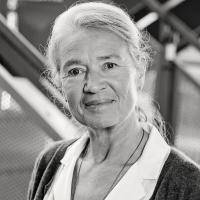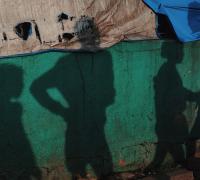PATHWAYS shares research assumptions on ‘Folkemødet’

Climate change, migration and conflict have long been addressed in terms of crisis without critically addressing the political dimension of why and how interlinkages between these phenomena are framed as crisis and with what effects. At Folkemødet’s International Arena, Ninna Nyberg Sørensen drew on PATHWAYS pilot-study findings to identify several important policy dilemmas:
- Vulnerability to climate change interacts with other migration driving factors. Besides environmental degradation, poverty, land shortage, limited social protection, political unrest and vulnerability to family, community and gender-based violence are additional factors to consider. Albeit a more nuanced understanding of such intersections is emerging, the multicausal nature of migration in general, and child/youth mobility in particular, present essential policy dilemmas.
- While human mobility may constitute a viable adaptation strategy to slow onset climate change, extreme weather events – a derivative effect of climate change – tend to lead to significant human mobility, primarily in the form of internal displacement. Related im/mobility outcomes are usually dealt with in different policy arenas, addressing either so-called ‘voluntary’ migration or ‘forced’ displacement. How to balance these constitutes a second policy dilemma, not least due to the vulnerabilities produced by restrictive migration policy.
- Widely shared concern about the vulnerability of children and youth on the move is not adequately addressed in existing social protection frameworks that tend to target adults and children within families. That childhood not necessarily is fixed within stable family structures presents a third policy challenge.
- International development and humanitarian organisations often refer to huge numbers of potential future climate migrants or refugees, numbers that may serve the purpose of attracting attention and funds for combating the ‘root causes’, but easily overlook that, in some circumstances, moving elsewhere may provide an opportunity to overcome the negative effects of climate change or even present a viable adaptation strategy.
Ninna Nyberg Sørensen presented together with her colleague, DIIS senior researcher Helene Maria Kyed, a long-time expert on conflict dynamics.
‘Folkemødet’ is a Danish public event where different organizations, politicians, companies and the media engage with various societal debates. It provides a fertile environment for sharing research findings to the general Danish public.
DIIS Experts


